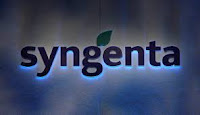The Chinese state-owned pesticide giant last Friday withdrew its bid for the initial public offering (IPO) saying the decision was taken "after careful consideration of the industry environment and the company's own development strategy".
Syngenta filed to list on the main board of the Shanghai Stock Exchange May 2023 seeking to raise 65 billion yuan (US$8.98 billion) and passed a review by the bourse's listing committee a month later. Its executives said as recently as November 2023 that Syngenta planned to list in 2024.
The company did not secure a green light from China's securities regulator or top leaders at the State Council, a prerequisite for blockbuster IPOs to go ahead, said the four people familiar with the matter.
The planned flotation finally came unstuck after Syngenta, owned by Sinochem, in March received informal instructions from the China Securities Regulatory Commission (CSRC) to pull its bid for the mega listing.
The reason for Syngenta's IPO withdrawal and the way it was managed, have not been reported previously, underscore how Beijing is prioritizing boosting investor confidence in the secondary market over the launch of new equity offerings.
The government's request for Syngenta to scrap its IPO came despite the company's seeds being essential to food security and China's self-reliance in grain production, which the country's leaders, especially President Xi Jinping, have strongly promoted.
The withdrawal resulted from Chinese authorities' concerns over the potential impact of a sizeable IPO on the frail stock market which had a wretched start to the year, said the four people with knowledge of the matter.
Large IPOs have often been cited by analysts as a reason for triggering the plunge of domestic stock markets, as large amounts of money are frozen when subscriptions are taken, sapping liquidity in the secondary market.
China's stock market rout at the beginning of the year came after mainland shares lagged global stocks for three years and with deflation at levels not seen since the global financial crisis of 2008-09.



